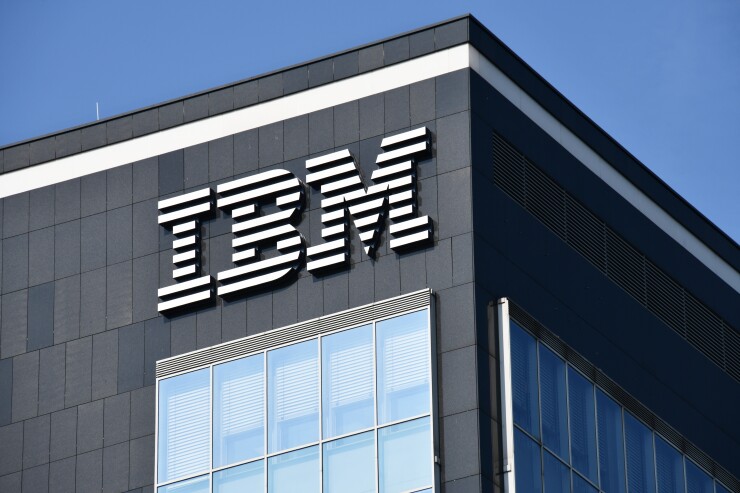When IBM announced that it was reopening its defined-benefit plan, many wondered if pensions in general were
"That is just not the story," said Alicia Munnell, director of the Center for Retirement Research (CRR) at Boston College. "I think this really is a financial maneuver much more than a change in design of how benefits are provided."
Behind IBM's decision
It's no wonder IBM's decision drew attention. In November 2023, the tech giant declared it was not only bringing back its pension plan — which had been frozen since 2008 — but was ending its 5% contribution match to its 401(k), starting in 2024.
The move seemed to fly in the face of a four-decade trend. Since the 1980s, American employers have been steadily shifting their retirement benefits from defined-benefit plans, like pensions, to defined-contribution plans, like 401(k)s.
Research has shown that retirees with 401(k)s, which leave disbursement decisions up to the user, tend to
Read more:
"I think that employers will take a second look" at pensions, said Mindy Zatto, co-founder of
But according to the CRR, that's not what motivated IBM. A
IBM's pension, the study found, had built up a surplus of $5 billion. If the company simply cracked it open and absorbed the money, it would get hit with a 50% excise tax.
"Basically, it's very hard to access the money that is in these closed defined-benefit plans," Munnell said. "You really don't want to take it out. That's the most wasteful thing a company can do, financially."
But there was another option: IBM could give the money to its employees in the form of retirement benefits. This would avoid the excise tax, and it would obviate the need — at least in IBM's view — to pay out expensive matching contributions to the 401(k).
Read more:
"The question is, when you have these big surpluses in there, can you put it to good use?" Munnell said. "IBM said, 'Oh, yes, we can make our retirement contributions through these excess funds, and then we don't have to do it by using cash coming in each year.' … So it really improves their cash flow."
Big benefits — for the business
Regardless of the motivation, will the change benefit IBM's workers? The CRR doesn't think so. According to the study's calculations, employees would have been better off with the company's original 401(k) match.
"If employees do not adjust the asset composition of their 401(k) contributions, they will have too much of their assets in fixed-income investments," the study said. "If the company's 5% contribution had gone into the 401(k) instead, it would earn the return on a mix of stocks and bonds — presumably higher."
Read more:
In an email, IBM defended its newly reopened pension, which it calls its "retirement benefit account" (RBA).
"The RBA adds a stable and predictable benefit that diversifies a retirement portfolio and provides employees greater flexibility and options," IBM said. "The RBA will replace current company contributions to the IBM 401(k) Plan, but employees can continue to contribute to their 401(k) plan as they do today."
Nonproliferation
Finally, there's the crucial question: Even if IBM's decision is a "financial maneuver," will it catch on at other companies? Could this be the beginning of a broader resurgence of pensions in corporate America?
Probably not, experts say.
"I don't think we'll see a huge resurrection of pension plans," Zatto said. "I hope that we will see a sampling — I hope that we will see some."
The CRR agreed. Its study found that "only a handful" of large companies would benefit from making the same kind of change as IBM. That's because such a company would need to meet two criteria: first, a huge surplus in an overfunded pension plan, and second, a generous enough 401(k) match that, if reduced or eliminated, would create enough savings to make the whole ordeal worth it.
Read more:
In the CRR's estimate, these criteria are not especially common. Only five companies might fit the bill: the aerospace company Honeywell International, the agricultural machinery company John Deere, and the banks JPMorgan Chase, Bank of America and Citigroup.
"There are a couple of companies that might seem well suited to this," Munnell said, "but really it doesn't seem like it's going to become a common thing."
What, then, is the future of pensions? Munnell and Zatto don't expect the defined-benefit plans of yesteryear to suddenly come back into vogue and overtake 401(k)s. But perhaps a middle ground could emerge.
"Pensions, to me, in this day and age, seem crazy, because from the business's point of view it bears all the burden," Munnell said. "On the other hand, we have these 401(k)s where all the burden falls on the employees. … I think what you want ideally is something in between, where there's some risk sharing."






